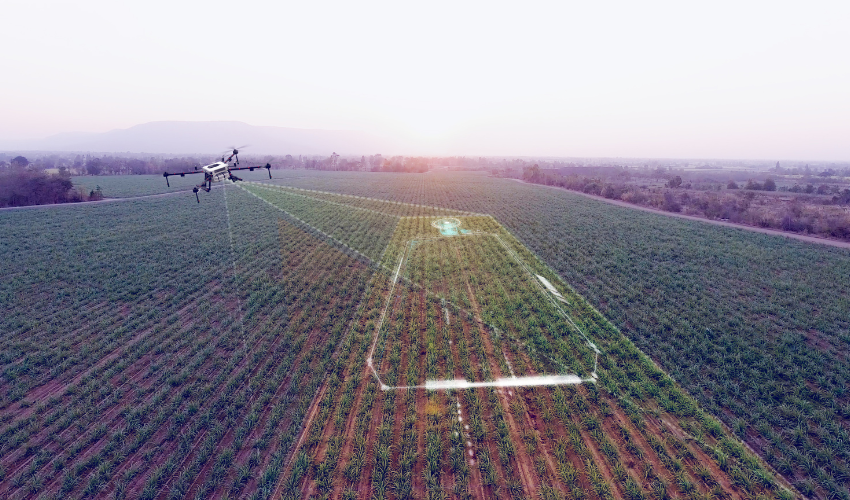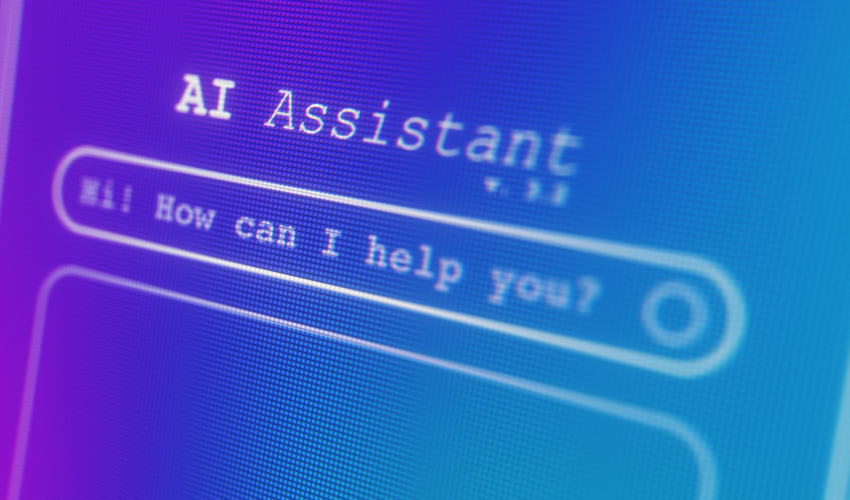AI Applications in 2025: Real-World Examples Transforming Business and Daily Life
Share it

AI is the most important things humanity is working on. It has tremendous potential to improve lives.
- Sundar Pichai -
AI applications are no longer futuristic ideas — they’re tools businesses and individuals use every day to work smarter, faster, and more creatively. From SMEs to global enterprises, AI is transforming operations, decision-making, and even our daily routines.
Let’s discuss AI applications and how they transform businesses in unimaginable ways. It’s not just about futuristic robots; it’s about practical applications that enhance growth and efficiency like never before.
Are you an SME seeking to unlock innovation, seize growth opportunities, or address ethical considerations with AI adoption?
You’re in for a treat.
This blog post will take you through the captivating world of AI applications, even in unconventional areas, with a special focus on SMEs.
Discover how 33% of small businesses have saved over 40 minutes weekly on AI marketing or how 91% of small businesses using AI applications claim it has made their business more successful (Source: CPA Practice Advisor).
Welcome to the fascinating world of AI applications in SMEs ⚡.
Unlocking Market Potential: AI and Machine Learning in SME
AI and machine learning are becoming essential tools for SMEs that want to modernize operations, improve decision-making, and stay competitive. And for business owners looking to build these capabilities more confidently, exploring some of the best AI business courses can accelerate adoption and provide structured guidance across marketing, operations, and finance. Learn more in my detailed comparison here: AI for Business Course Review.
In today’s business landscape, SMEs are embracing AI and machine learning to unlock market potential.
These game-changing technologies optimize operations, predict customer behavior, and drive growth. Easy and affordable access to advanced machine learning methods is crucial for business managers to make informed decisions.
Let’s explore how AI and machine learning revolutionize the SME sector.
Leveraging AI: A Game Changer in Business Operations
One of the greatest advantages of AI in SMEs is the boost in efficiency and productivity it brings. <p>If you’re exploring how these tools reshape productivity, collaboration, and day-to-day roles inside modern companies, my guide on AI in the Workplace breaks down real examples and practical benefits.
AI applications offer valuable insights into business operations, identifying areas for improvement.
Thanks to AI’s predictive capabilities, businesses can make smarter decisions and streamline their operations, minimizing waste and maximizing profits. With AI, businesses can automate repetitive, time-consuming tasks, freeing employees to focus on more important activities.
Example: AI-Powered Solutions Driving SME Growth
Zest AI is reshaping how fintech companies approach credit scoring. Its platform, Zest Automated Machine Learning (ZAML), analyzes applicant data to generate more accurate lending decisions. By speeding up approvals and reducing default risk, ZAML helps lenders boost loan profitability without compromising compliance. AI-powered credit scoring by Zest AI is giving lenders the tools to make smarter, faster decisions.
In 2018, Ford Motor Credit Company partnered with Zest AI to enhance its credit decision-making process. Ford Credit developed a custom credit scoring model with Zest’s machine learning software for precise risk assessment and informed lending decisions.
Prestige Financial Services also leveraged Zest AI’s platform, resulting in a notable 10% increase in approval rates with no added risk.
Navigating the Ethical Landscape of AI Application
Exploring Ethical Dimensions: AI in Practice
With the increasing presence of AI applications, ethical considerations are crucial.
Privacy, surveillance, and bias are front and center in the ethics of AI. According to the AI Ethics Guidelines Global Inventory by AlgorithmWatch, the number of organizations creating ethical AI charters has increased by 80%. This clearly shows that ethical AI practices are no longer optional but expected.
Security and Compliance: Safeguarding AI Applications
For AI applications, data security and compliance are crucial. Enterprises must ensure application security against cyber-attacks and comply with privacy regulations for data.
Handling personal information with care is essential for AI applications involving gathering, processing, and storing data.
Real-world Analysis: Ethical Scenarios in AI Use
SoapBox Labs took a bold stance on ethical AI development, anonymizing children’s voice data and securing parental consent after uncovering risks around potential misuse — a clear example of ethics driving innovation in AI.
Recognizing the ethical implications, they proactively prioritized privacy by anonymizing data and obtaining parental consent.
This highlights the importance of considering ethics in AI.
Beyond the Norm: Application of AI in Unconventional Sectors
Artificial intelligence (AI) holds immense power beyond technology and finance, transforming unexpected fields like agriculture, creative arts, and non-profit organizations, which implement AI in workplace operations to streamline operations and drive innovation.
AI in Agriculture: Technology Meets Tradition
The Small Robot Company, a British SME, aims to revolutionize farming with AI-powered agricultural robots. 🤖.
Meet Tom, Dick, and Harry – friendly robots equipped with advanced sensors and AI technology to collect and analyze crop data. By harnessing AI, farmers can make smarter decisions, predict yields, reduce waste, and take prompt action.
AI in agriculture makes farming more efficient, enjoyable, and profitable.
The Art of AI: Unveiling Technology in Creative Sectors
Jukin Media, a global entertainment company, finds, collects, and shares user-generated content using AI-powered video analysis 📽.
With AI, they analyze thousands of videos daily to spot viral hits and predict trends. This provides valuable insights into resonating content and saves time and resources through automation.
In the film industry, ScriptBook’s AI script analysis tools evaluate screenplays before production, predicting MPAA ratings, estimating budgets, and forecasting box office performance to help filmmakers make data-informed decisions.
Amazing, right?
Non-profits and AI: A Pioneering Area
“The Ocean Cleanup” is doing some incredible work using AI applications to track plastic in the ocean 🌊.
This helps them gather accurate data on where to focus their resources for cleanup. By harnessing the power of AI, non-profits like them can reach more people, improve efficiency, and make an even greater impact on social issues.
This is definitely deserving of our attention!
Your AI Adoption Blueprint: A Development and Optimization Guide
AI adoption is a transformative process that impacts businesses in various ways.
Having a clear blueprint outlining development and optimization processes is crucial.
Did you know that between 50% and 60% of organizations currently use AI?
Impressive, right?
Additionally, 77% of businesses have either adopted AI or have a plan to do so.
Preparing for AI: Design and Development Essentials
AI adoption blueprints blueprint 🛠 are essential for businesses looking to integrate AI into their systems.
These blueprints provide a clear roadmap for seamless AI integration.
Before implementing AI, consider design elements. Set goals and establish key performance indicators (KPIs) aligned with your objectives. Ensure the right infrastructure for data access and analysis, and give your team a simple prompt engineering guide to get reliable, repeatable outputs from generative AI tools.
Optimization Techniques for AI Implementation
Optimizing AI implementation involves continuous testing, refining, and updating of algorithms and software.
At H2O.ai, user feedback is highly valued as it aids in making necessary improvements. As an SME specializing in open-source machine learning and AI solutions, H2O.ai continuously tests and hons its AI models for peak performance.
They remain at the forefront of the AI field through the regular updating of their algorithms and software.
Supported by a robust computing infrastructure and seamless API integration, H2O.ai ensures a smooth user experience. The company stands by the importance of constant synchronization between their systems and team members for flawless operation.
Management Best Practices: Ensuring AI Success
Achieving AI success involves sophisticated technology and effective team management, similar to the dynamics explored in project-driven team collaboration.
This includes fostering regular feedback and open communication, cultivating a culture of innovation, and aligning personal goals with business objectives.
To optimize management strategies, it is essential to prioritize transparent processes, ensure data quality control, and drive positive change in organizational workflows.
Real-world Examples: AI Transforming Everyday Life
In our daily lives, various types of AI enhance our experiences by powering devices and services that adapt to our needs with remarkable intelligence.
According to a Pega study, a whopping 84% of people rely on AI-powered services or devices. Personal digital assistants like Siri and Alexa understand our natural language, providing personalized experiences.
Apps like Uber, Netflix, and Amazon use AI to give spot-on recommendations based on our preferences.
It’s cool, right?
AI in Daily Lives: Automation and Ease
AI is revolutionizing our daily lives, making everything more convenient.
From smartphones to home appliances, AI applications automate tasks and enhance accessibility. Personal assistants like Siri and Alexa have become part of our routines, providing valuable information and personalized experiences.
And applications like Uber, Netflix, and Amazon offer tailored recommendations based on our preferences.
Examples of AI: Bridging Technology and Reality
AI has revolutionized healthcare, powering innovations like wireless monitors, diagnostic tools, and robotic surgery.
It’s incredible how AI extracts insights from patient data, aiding in early disease detection.
An Israeli startup, Zebra Medical Vision uses AI to detect diseases like lung cancer through advanced medical imaging, helping doctors diagnose earlier and more accurately.
With advanced algorithms, they provide critical insights for early treatment.
This sounds game-changing.
Machine Learning: The Engine Behind AI-Enabled Applications
Deep Learning: Advancing AI Applications
Deep learning is a rapidly evolving field of machine learning that powers amazing AI applications. It’s the backbone behind speech recognition, computer vision, and natural language processing, enabling incredible possibilities with neural networks.
The best part? Deep learning is a key aspect of AI that helps applications continuously improve, enhancing their ability to learn from vast amounts of data.
Deep learning technologies are also advancing how we use AI, from creating sophisticated chatbots that mimic human conversation to enhancing virtual reality training systems.
Machine Learning Algorithms: Powering Innovationtions
Machine learning algorithms have diverse applications across industries.
Fraud detection, image recognition, and real-time forecasting are examples that revolutionize workflows. Intelligent systems, forecasting models, and behavior prediction models leverage decision trees and neural networks.
PathAI’s role in AI-assisted pathology in healthcare uses machine learning to provide accurate medical diagnoses. Their algorithms analyze medical images, spotting patterns and abnormalities often missed by humans.
Security and AI: A Delicate Balance
Machine learning is a powerful branch of AI adopted across sectors, helping businesses automate decision-making and uncover patterns in large data sets. One report shows that 35% of companies now apply coding and software development skills to harness the full potential of ML applications.
ML fuels AI applications, driving innovation, efficiency, and accuracy.
AI and Data Security: Safeguarding Information
Security and data protection are crucial for businesses and individuals.
AI offers robust solutions to safeguard information and detect threats in real-time. Leveraging machine learning algorithms, AI learns from daily operations and uncovers intrusion methods.
For example, iRobot uses users’ home maps to train AI systems for intelligent home services, raising privacy concerns. Striking the balance between security and data privacy is more important than ever as AI adoption grows.
One standout example is StackRox, a Kubernetes-native security platform that uses machine learning to detect network anomalies and prevent threats in real time. This approach helps businesses safeguard their data, applications, and infrastructure from evolving cyber risks.
Ethical Compliance: AI in Sensitive Areas
AI is revolutionizing fields like surgeries and senior assistance, but ethical concerns must be addressed.
Healthcare, education, and law enforcement require unbiased datasets and close AI system monitoring. Facial recognition in law enforcement, for instance, should be ethically developed with responsible data sourcing and consent.
Skyline AI, a real estate investment firm using artificial intelligence to support bias-free property decisions, ensures compliance with fair housing laws and strict ethical standards.
Chatbots and Assistants: AI’s Customer Service Marvels
AI has revolutionized customer service with chatbots and digital assistants that now handle over 23% of all customer support interactions. These smart tools offer instant replies, reduce support costs, and work around the clock.
And guess what?
According to a recent survey by Tidio, 34% of online shoppers feel comfortable interacting with AI chatbots, especially in retail settings.
These stats highlight the growing importance of AI in enhancing customer interactions.
AI in Customer Interaction: Chatbots and Beyond
Customer service is crucial for businesses, and AI takes it to the next level by creating personalized, engaging experiences.
Chatbots and AI-powered service agents are the superheroes of FAQs and requests – available round the clock, responding quickly, and integrating well with platforms like Facebook, Twitter, and WhatsApp.
Even big names like Mastercard rely on AI chatbots for top-notch customer service.
Take Structurely, a real estate tech company, for example. They’ve developed “Aisa Holmes,” an AI chatbot that not only qualifies leads but also schedules appointments in real-time. It’s a time-saver for professionals and ensures speedy responses for potential clients.
Enhancing Service with AI Assistants
AI assistants like Siri and Alexa are revolutionizing customer service.
🌟 With just your voice, you can get real-time help, control your smart home, schedule meetings, and shop online.
During COVID-19, voice-enabled AI assistants have been a lifeline for restaurants, enabling remote orders and adapting to these challenging times.
AI in Healthcare: A Leap Towards Better Health Outcomes
Artificial Intelligence (AI) is making incredible progress in healthcare, revolutionizing everything from patient care to administrative tasks.
Did you know that the global AI in healthcare market is projected to reach a whopping $120.2 billion by 2028?
That’s a staggering growth rate of 41.5% from 2021.
AI in Disease Analysis and Diagnosis
The healthcare industry is an ideal playground for AI applications. AI algorithms can analyze vast amounts of data, uncover patterns, and enhance diagnoses, prognoses, and treatment plans.
For instance, AI algorithms can detect early signs of breast cancer in mammograms, leading to more precise diagnoses and potentially life-saving interventions.
PathAI, a cool startup in Boston, is using AI to assist pathologists in disease diagnosis, improving the accuracy and speed of cancer and other pathology diagnoses.
AI-Enabled Patient Management and Care
AI can revolutionize patient management by monitoring vital signs and disease status, detecting early distress signs, and optimizing treatment plans.
Wearable devices powered by AI help detect signs of heart disease and stroke, while Healthem.AI’s care management platform assesses and tracks at-risk patients.
With AI, we can provide proactive and personalized care.
Optimization Through AI: A New Horizon in Retail and Finance
AI is transforming industries like retail and finance, bringing about a revolution of possibilities!
The global AI market in retail is expected to reach a staggering $10.9 billion by 2025, while AI in finance is projected to hit a remarkable $26.5 billion by 2026.
According to a KPMG survey, retail leaders believe that AI will impact customer intelligence (53%) and inventory management.
AI for Inventory and Supply Chain Management
AI is a game-changer for retailers, helping them efficiently manage inventory and supply chain processes. By analyzing sales data, algorithms predict restocking needs and optimize routes for timely and cost-effective deliveries.
San Francisco startup Clear Metal is a shining example of this application. Their AI-powered platform enhances supply chain and logistics efficiency, providing accurate visibility into global supply chains and proactively resolving disruptions.
AI in Finance: Automation and Analysis
AI is amazing! It automates processes like fraud detection, loan processing, and underwriting.
AI uncovers inefficiencies, growth opportunities, and trends by analyzing financial data.
Let’s check out Kabbage, an awesome Atlanta-based fintech company that uses AI and machine learning to automate small business loan approvals.
Kabbage assesses creditworthiness by analyzing business operations, market trends, and even social media. The best part? They provide real-time lending decisions.
AI revolutionizes work, making things efficient and accessible for all.
Driving Innovation: Self-Driving Car Applications of AI
The rise of self-driving cars powered by AI is a true testament to the incredible technological advancements we’ve achieved.
By 2030, experts predict that autonomous vehicles could make up to 15% of global vehicle sales.
Let’s rewatch The Fifth Element to start our training 😁.
Navigating Traffic Management: AI on the Road
AI is revolutionizing transportation, especially self-driving cars that use sensors, GPS, and machine learning to navigate and respond in real-time. It also plays a vital role in traffic monitoring and management, reducing congestion and enhancing road safety.
Intelligent Traffic Management systems (ITMS) analyze patterns, optimize signal timings, reroute traffic, and provide real-time updates to drivers.
Excitingly, Isarsoft, a German startup, uses AI to analyze video data from traffic cameras, helping traffic planners make informed decisions about road infrastructure.
Self-Driving Car Technology: AI and Machine Learning at the Helm
Self-driving cars rely heavily on machine learning to make autonomous decisions in challenging situations like hazardous weather or unexpected events.
Machine learning algorithms analyze patterns in vast amounts of data, allowing the car to detect objects on the road, recognize lanes, and make prompt decisions based on the surrounding conditions.
Engaging the Digital Consumer: AI in Marketing
In today’s digital era, businesses are embracing AI to connect with the modern consumer.
A recent study highlights that marketing campaigns incorporating AI recommendations are 116% more effective, achieving a 22% increase in click-through rates.
It’s incredible to see how AI is revolutionizing the way we engage with customers.
AI-Powered Marketing Campaigns: A Modern Trend
AI is revolutionizing marketing and advertising, bringing exciting innovations.
With AI, companies analyze consumer data to create targeted campaigns. They consider customer history, social media habits, and location data for personalized experiences.
Phrasee, a UK-based SME, uses AI to optimise email marketing. Their platform uses AI-powered language generation to write high-converting email subject lines, body content, and calls to action—helping brands drive better engagement and conversion rates.
AI and Customer Data: Unlocking Marketing Insights
AI is a powerful ally for marketers, unlocking valuable customer insights.
By analyzing interactions and feedback, AI algorithms reveal patterns, predict behavior, and identify risks. For instance, AI can pinpoint customers at risk of not renewing subscriptions, offering special discounts to retain them.
Let me introduce Chattermill, a UK startup that uses AI-driven customer experience analytics to turn messy feedback from reviews, emails, and social media into actionable insights brands can actually use.
With this information, companies can enhance their products and services based on real feedback.
Further reading on MyriamTisler.com: Explore how AI in the Workplace improves efficiency and decision-making.
Discover the different Types of AI and their unique applications in diverse fields.
Check out how ChatGPT Training can be used to enhance communication and automate customer support.
Learn about AI Project Management. Understand how AI tools can streamline project planning and execution.
Conclusion
AI applications are totally revolutionizing our world.
They simplify tasks and automate processes, bringing countless possibilities to sectors beyond our imagination.
But let’s not forget it’s crucial to prioritize ethics and security for responsible development.
This not only fosters tremendous opportunities for businesses to flourish but also enhances our daily lives by saving time and valuable resources.
AI-powered solutions have already proven to be game-changers, and guess what?
This trend is set to continue in the years to come, so considering AI applications is an absolute must for businesses to stay competitive in the modern world.
AI applications are transforming how businesses and individuals operate, innovate, and solve problems. This article explores real-world examples across SMEs, agriculture, creative industries, non-profits, and daily life, showing how AI drives efficiency, accuracy, and growth. Readers will also learn about ethical considerations, adoption blueprints, and optimization techniques for successful implementation. Supported by case studies and research, the post highlights how AI improves decision-making, enhances productivity, and empowers new possibilities in both business and personal contexts. The result is a clear, practical guide to understanding AI’s impact and how organizations can prepare for the future.

Hi, I’m Myriam.
I love blending tech with change management, user experience, project management, business analysis, streamlining processes, improving customer journeys, and designing business structures. While I’m not the top expert, I enjoy exploring these areas and sharing my insights. Whether it’s for large corporations or small startups, I’m passionate about finding efficient ways for them to work. I enjoy experimenting with new recipes and attending artsy events when I’m not doing that. This blog is my space to chat about all the cool business and tech topics I have discovered.
















